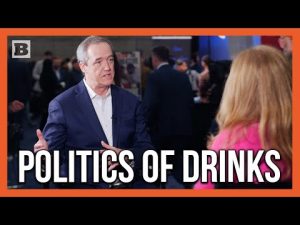In recent media discussions, a considerable amount of attention has been drawn to the nomination of Robert F. Kennedy Jr. to head a new government initiative focused on vaccines and public health. This nomination has sparked controversy, particularly given Kennedy’s well-publicized skepticism about certain vaccines. However, it is important to dissect this situation further and examine what this means for our public health policy moving forward.
Firstly, the initial fear surrounding Kennedy’s appointment is understandable. Historically, vaccines have been one of the most effective tools in mitigating disease, with the polio vaccine often cited as a prime example. The mention of eliminating essential vaccinations causes alarm, but the nominee himself has stated that there are no plans to scrap the polio vaccine or any other essential ones. He acknowledges the success of the polio vaccine, which has played a crucial role in eradicating the disease in many parts of the world. In doing so, Kennedy emphasizes the need for rational discourse over outright dismissal of critical health initiatives.
Moreover, Kennedy’s proposed approach is not about negating the current healthcare framework but rather enhancing it. He advocates for reviewing the existing vaccination program in a way that seeks to identify areas for improvement. This pragmatic mindset could potentially yield significant cost savings while reinforcing public trust in vaccines. It stands to reason that by carefully evaluating which vaccines are most effective and necessary, the government can streamline its approach and ensure that taxpayer resources are used wisely.
Another key point in this discussion is the hesitance surrounding pesticides and their potential effects on public health. By opening up dialogues that go beyond vaccines, Kennedy proposes a holistic review of public health measures. Addressing concerns with pesticides can lead to important discussions around agricultural practices, environmental safety, and health outcomes for consumers. This broader examination reflects a thoughtful consideration of how various factors contribute to public health and can help bridge the gap between skepticism and informed decision-making.
Furthermore, it is critical to challenge the perception that questioning current vaccine policies equates to being anti-vaccine. This type of thinking can stifle valuable discussions that lead to improvements in the system. By fostering a climate where ideas can be explored with a rational mindset, it becomes possible to address legitimate concerns without rushing to demonize individuals based on their questions or beliefs. It is this open dialogue that will ultimately usher in a more robust and trustworthy vaccination program.
In conclusion, Robert F. Kennedy Jr.’s nomination may seem contentious at first glance, especially in light of his previous statements regarding vaccines. However, his approach encourages a thoughtful evaluation of public health practices, which could strengthen trust in the healthcare system and save costs. The focus should remain on rational discourse and rigorous examination of health policies. After all, it is not about throwing the baby out with the bathwater but rather ensuring that both the baby and the bathwater are as safe as possible. Embracing this mindset could lead to a healthier population and a more efficient governmental approach to public health.







